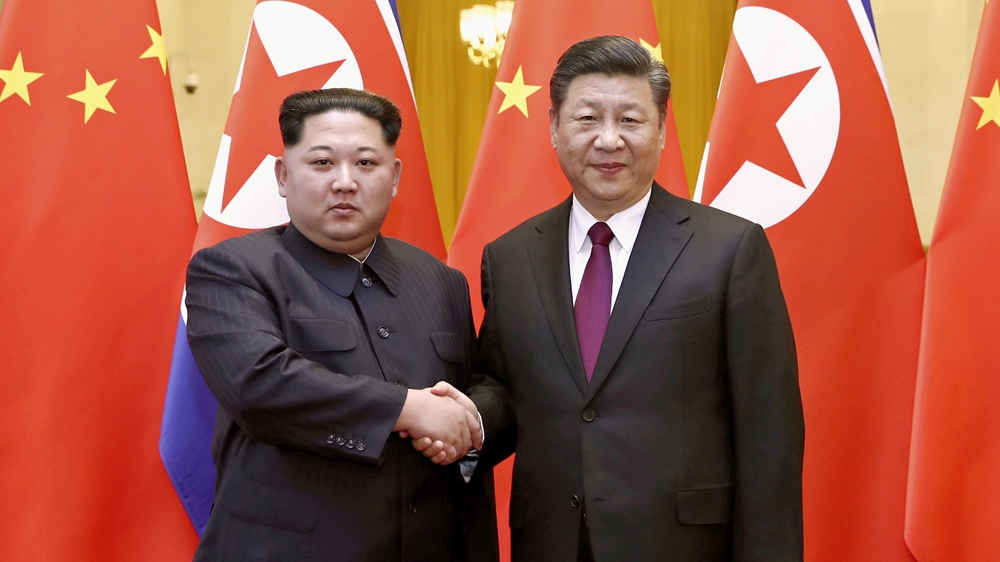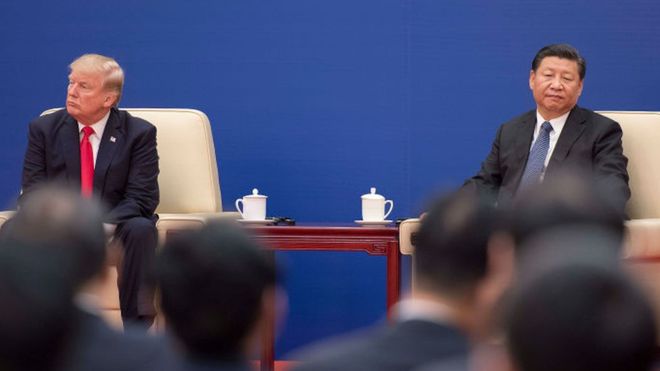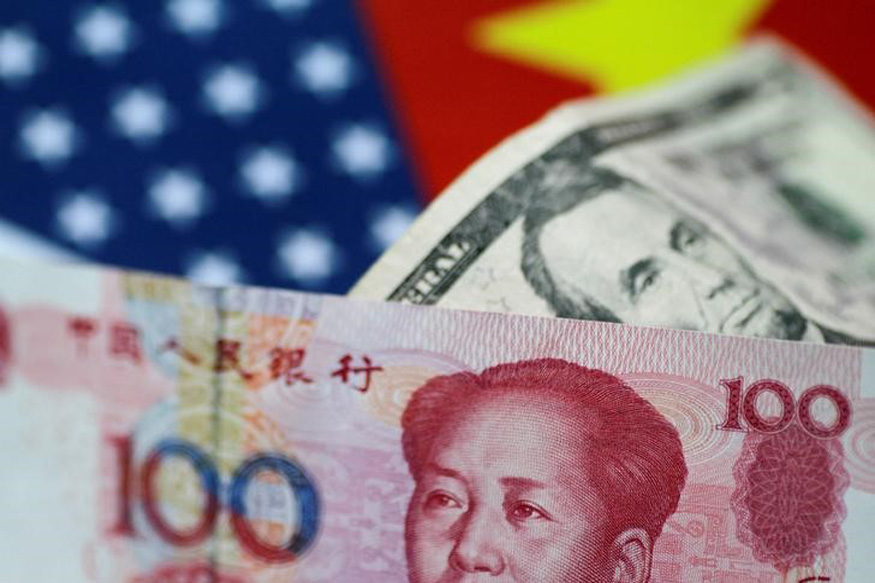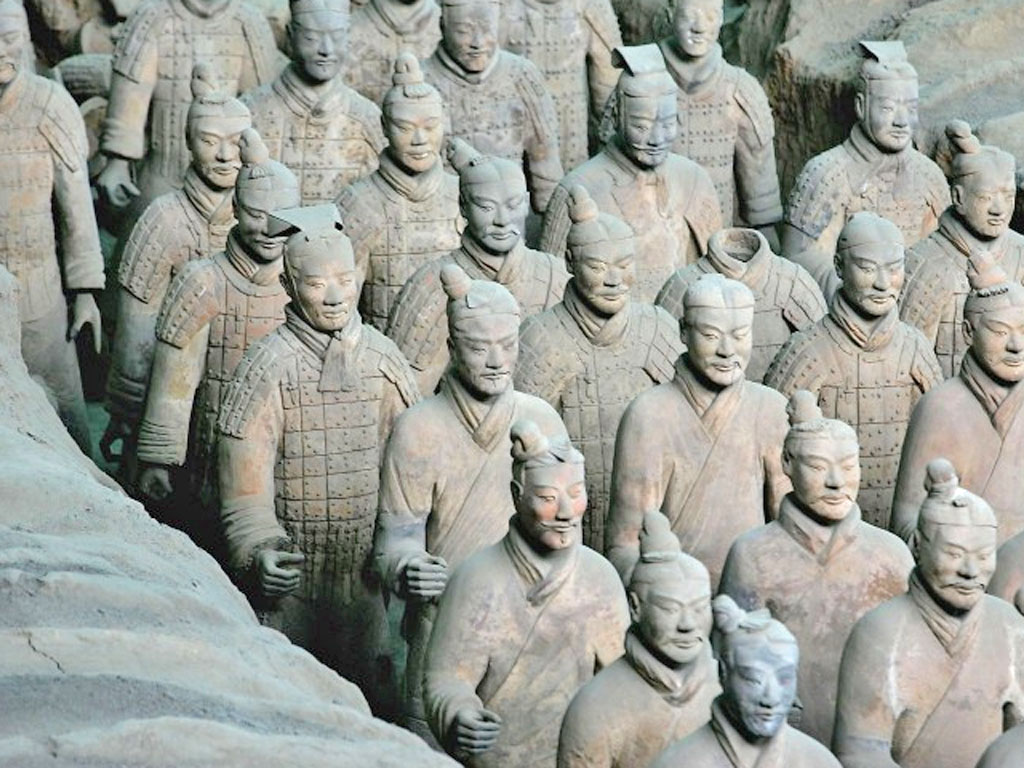
 Kim Jong Un Visits Beijing on First Overseas Visit
Kim Jong Un Visits Beijing on First Overseas VisitA mysterious green armored train that pulled into Beijing's central train station on Monday was carrying the reclusive North Korean leader Kim Jong Un on his first overseas visit since coming to power in 2011, Chinese and North Korea state media announced on Wednesday. The secretive visit, which was the subject of intense speculation on social media, was only officially confirmed after Kim's train left Beijing.
During his visit, Kim and his advisors met with President Xi and participated in a series of activities, including an art performance, a state dinner, and meetings at the Great Hall of the People. Other high-level officials, including Li Keqiang, Wang Qishan and Wang Huning, were also present at the meetings. As Xinhua reported on Wednesday, President Xi told Kim that the relationship between China and North Korea was a legacy handed down by former generations of leaders of both countries, and something precious to both countries. In return, Kim expressed his commitment to transforming the relationship between North and South Korea into "a relationship of reconciliation and cooperation."
Kim also made his first official confirmation of the proposed upcoming meeting between himself and President Donald Trump subsequent to his meeting with Xi. Previously, the invitation for a meeting had been relayed by South Korean officials but had not been confirmed by North Korea. Echoing some of his past statements on denuclearization, Kim reportedly said to Xi: "The issue of denuclearization of the Korean Peninsula can be resolved, if South Korea and the United States respond to our efforts with goodwill." This likely refers to the long-standing condition that North Korea has placed upon "denuclearization" of the peninsula, which is that the U.S. withdraws its nuclear umbrella and possibly also its troops from South Korea. Abraham Denmark, Senior Fellow at the Kissinger Institute for China and the United States, argued in an article for China-US Focus this week that "assuming the [Trump-Kim] summit takes place, it is unclear what each side may come to the table with. We do know, however, that the traditional positions of the United States and the DPRK have proven intractable and fundamentally incompatible."
Speculation over what prompted the significant visit of Kim to China may be at least partly quieted by new data reported this week. Official Chinese statistics show that in the previous few months, China has virtually halted all exports of petroleum products, coal and other key materials to North Korea, going significantly further than UN sanctions require. As opposed to Trump's "maximum pressure" campaign, "it is Chinese 'maximum pressure' that may be bringing a change in North Korean policy," a former U.S. diplomat in China, Alex Wolf, was quoted as saying by The Financial Times.
 This Week in China-U.S. Trade: The Impact of a Potential Trade War
This Week in China-U.S. Trade: The Impact of a Potential Trade WarOngoing trade disputes between China and the U.S. continued to escalate this week following President Trump's plans for $60 billion worth of tariffs on Chinese goods. On Thursday, China's Commerce Ministry pushed Washington politicians to oppose the tariffs, warning that it could spark a global trade disruption.
A spokesman for the ministry, Gao Feng, said that Beijing will "take all appropriate measures" to protect its interests. "China could consider taking reciprocal measures against U.S. imports of agricultural products besides soybeans, as well as aircraft, automobiles and semiconductors," he said. The back and forth of threats, tariffs, and CFIUS-blocked deals over the past several weeks has led many to believe a trade war is imminent. Economists around the world have emphasized that a trade war between the China and the U.S. would not only hurt the global economy, but present a lose-lose situation for both nations' economies.
As China-US Focus contributor Yu Xiang argued this week, "World economic history has shown us again and again that there is no winner in trade wars. In reality, Trump's aggressive actions against China, and other parties including the EU, Mexico, and Brazil, could easily invite retaliation, which could do huge damage to U.S. companies, and its consumers." Major companies and influential players in the global economy, such as Amazon, Google and Facebook, are urging Trump to drop the tariffs on China, warning against their potential detrimental impact on U.S. workers.
On Monday, The Financial Times delved into what a trade war between China and the U.S. would look like. The report concluded that China would fare worse than the U.S., as it exports more than it imports. "China's trade surplus swells its economy each year, while net imports subtract from the U.S. growth," the report said. "From this perspective, economists say Mr Trump is correct that he has less to fear from a decrease in trade with China than President Xi Jinping."
 China Takes Steps to Pay for Oil in Yuan, Instead of the Dollar
China Takes Steps to Pay for Oil in Yuan, Instead of the Dollar"Far beneath the surface of the international monetary system a tectonic shift could be unfolding," argued Christopher McNally in an article for China-US Focus last year. He was referring to China's attempts to "internationalize" the yuan by compelling oil exporters, especially Saudi Arabia, to trade oil in yuan instead of the dollar. "Such a move could take between $600 billion and $800 billion worth of transactions out of the U.S. dollar," McNally wrote. "It could lead to the emergence of a new Asia-based crude oil benchmark and, ultimately, allow the yuan to be perceived as a primary currency for trading oil."
This week was the launch of the first Chinese crude oil futures in Shanghai, which is the first crude oil benchmark in Asia. Trading opened on Monday and showed initial promising signs, suggesting that sentiment toward the new market is positive. As The Economist notes, China may be hoping to create a standard for oil pricing as a rival to Brent in Europe and West Texas Intermediate in America, that reflects its own supply and demand. Denominating oil contacts in yuan would promote the use of the yuan in global trade, which is a long term goal of the Chinese government. On Thursday, Reuters reported that a pilot program for yuan payment could be launched as early as the second half of this year and that some financial institutions had been told by Chinese regulators to prepare for pricing China's crude imports in yuan.
Analysts disagree over whether the yuan may challenge the dollar's dominance in oil trading. Bloomberg columnist David Fickling has argued that China doesn't have "nearly the influence in the oil market needed to carry out such a coup." However, others have predicted that paying in yuan for oil could become part of President Xi's Belt and Road Initiative.
 This Week in Chinese History
This Week in Chinese HistoryOn March 29, 1974, which is forty-four years ago, local farmers near Xi'an, China, made one of the most significant archaeological discoveries in history when they unearthed the first sign of the terracotta army while digging a well. The army consists of an estimated 8,000 terracotta soldiers, as well as horses and chariots. It was buried with the first Emperor of China, Qin Shihuang, in the third century BC. The clay soldiers are positioned according to rank and each have individual facial expressions. Only around 2,000 of the warriors have been excavated since their discovery in 1974.
Prepared by China-US Focus editorial teams in Hong Kong and New York, this weekly newsletter offers you snap shots of latest trends and developments emerging from China every week, while adding a dose of historical perspective.
- 2018-03-23 President Trump Asks for Tariffs on Around $50 Billion Worth of Chinese Imports
- 2018-03-16 Tillerson to be Replaced by Mike Pompeo as Secretary of State
- 2018-03-09 President Trump Agrees to Meet Kim Jong-Un
- 2018-03-02 U.S. Imposes Tariffs on Chinese Aluminum
- 2018-02-23 A Week of Developments Related to North Korea
- 2018-02-16 Cui Tiankai says U.S. Should Not Advocate Confrontational Strategy Towards China
- 2018-02-09 China Releases the “No.1 Central Document” Containing New Rural Policies
- 2018-02-02 Wang Qishan Appointed to the National Legislature
- 2018-01-26 New Edition of the Focus Digest
- 2018-01-19 South Korea and North Korea to Compete Together at the Winter Olympics
- 2018-01-12 U.S. House of Representatives Passes Taiwan Bills
- 2018-01-05 U.S. Rejects Sale of Moneygram to China’s Ant Financial
- 2017-12-22 Trump’s National Security Strategy Labels China a “Revisionist Power”
- 2017-12-15 White House and Secretary of State contradict each other on North Korea talks
- 2017-12-08 China Boasts its Technology Chops at the 4th Annual World Internet Conference
- 2017-12-01 The Future of the China-US Economic Relationship
- 2017-11-17 The “Indo Pacific”: A New American Strategy for Asia?
- 2017-11-10 President Trump Revels in China’s State-Visit Red Carpet Treatment
- 2017-11-03 Will China Display Hard or Soft Power in the Era of Xi?
